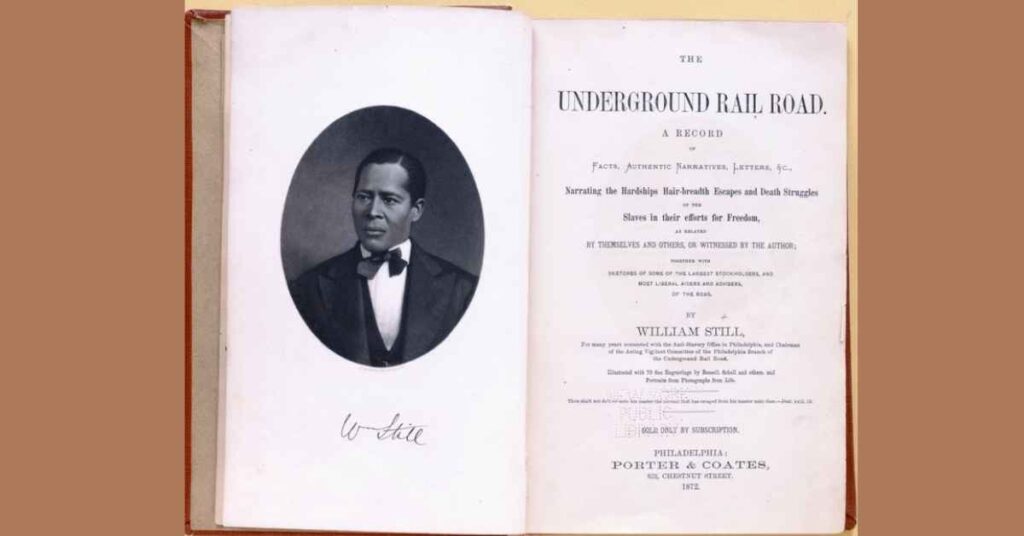This excerpt from “The Underground Railroad” by William Still documents the reaction of a successful black caterer in Philadelphia in the 1850s to being asked to track down an escaped slave.
A leading pastor of an Episcopal Church was a friend of the mistress slave owner. He stopped Thomas Dorsey in the street and demanded that the businessman help find the fugitive.
Dorsey himself had escaped from the South. The pastor had approached the wrong man and was given a refusal in no uncertain terms.
We have a separate excerpt of the account of the escaped slave, Cordelia Loney. Here, we give the excerpt documenting the meeting between these two men.

Excerpt From The Book – Thomas Dorsey Approached On The Street
[The headings and italicized text in the excerpts below were added by the website editor. The rest is verbatim from the book apart from some changes to the punctuation.]
A certain Doctor of Divinity, the pastor of an Episcopal church in this city and a friend of the mistress [owner of the escaped slave], hearing of her distress, by request or voluntarily, undertook to find out Cordelia’s place of seclusion.
Hailing on the street a certain colored man with a familiar face, who he thought knew nearly all the colored people about town, he:
- related to him the predicament of his lady friend from the South,
- remarked how kindly she had always treated her servants,
- signified that Cordelia would rue the change, and be left to suffer among the “miserable blacks down town,”
- that she would not be able to take care of herself;
- quoted Scripture justifying Slavery
[The pastor] finally suggested that he (the colored man) would be doing a duty and a kindness to the fugitive by using his influence to “find her and prevail upon her to return.”
It so happened that the colored man thus addressed, was Thomas Dorsey, the well-known fashionable caterer of Philadelphia, who had had the experience of quite a number of years as a slave at the South.
Thomas Dorsey Responds
[He] had himself once been pursued as a fugitive, and having, by his industry in the condition of Freedom, acquired a handsome estate, he felt entirely qualified to reply to the reverend gentleman, which he did, though in not very respectful phrases, telling him that
- Cordelia had as good a right to her liberty as he had, or her mistress either;
- that God had never intended one man to be the slave of another;
- that it was all false about the slaves being better off than the free colored people;
- that he would find as many “poor, miserably degraded,” of his own color “down-town,” as among the “degraded blacks”;
[He] concluded by telling him that he would “rather give her a hundred dollars to help her off, than to do aught to make known her whereabouts, if he knew ever so much about her.”
About The Book
“The Underground Railroad” was published in 1872. The book gives the testimonies of hundreds of slaves who escaped to freedom using the network of agents and safe houses.
The author, William Still, was a black abolitionist and businessman who was a key member of the Philadelphia stop in the freedom network.
The book is in the public domain. It can be found in the Library of Congress.